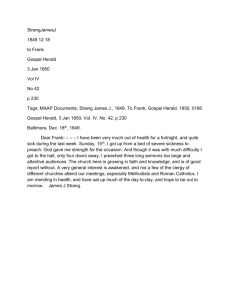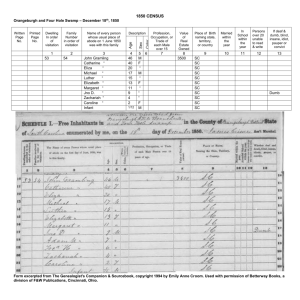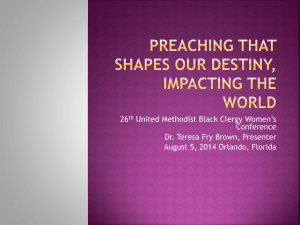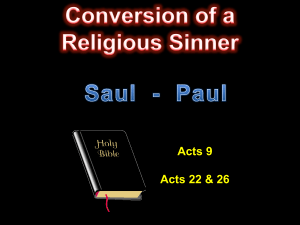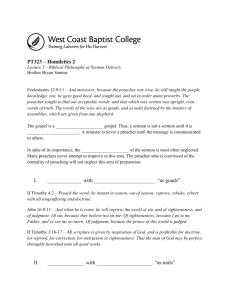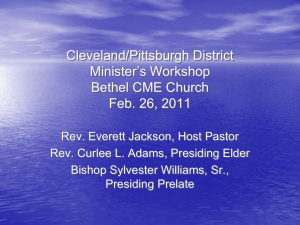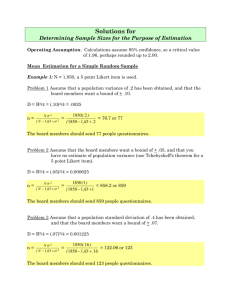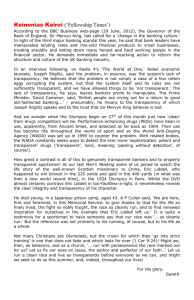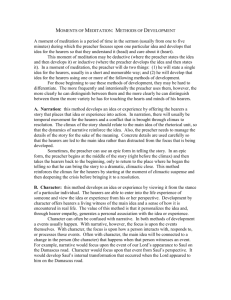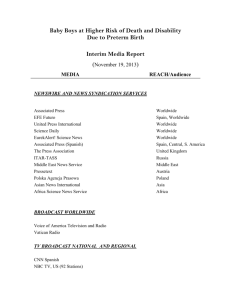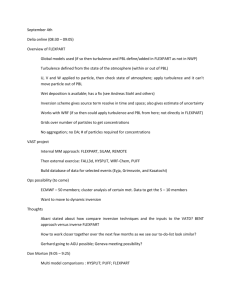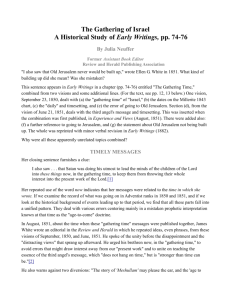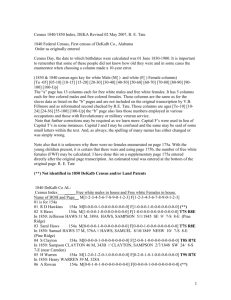File - WordPress.com
advertisement
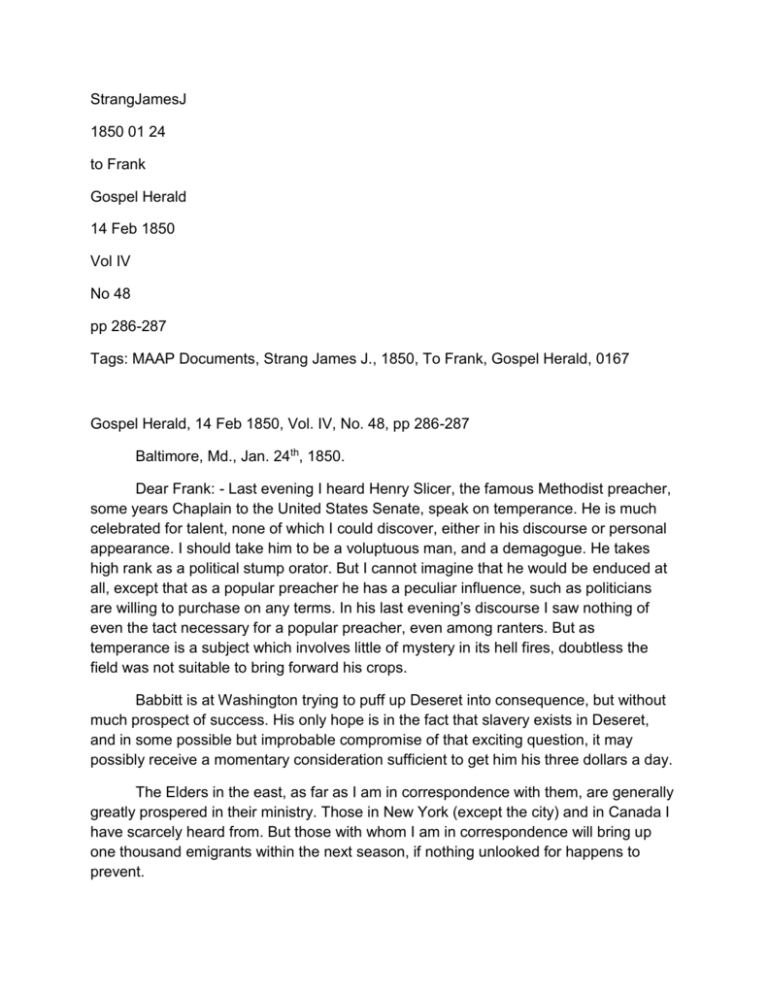
StrangJamesJ 1850 01 24 to Frank Gospel Herald 14 Feb 1850 Vol IV No 48 pp 286-287 Tags: MAAP Documents, Strang James J., 1850, To Frank, Gospel Herald, 0167 Gospel Herald, 14 Feb 1850, Vol. IV, No. 48, pp 286-287 Baltimore, Md., Jan. 24th, 1850. Dear Frank: - Last evening I heard Henry Slicer, the famous Methodist preacher, some years Chaplain to the United States Senate, speak on temperance. He is much celebrated for talent, none of which I could discover, either in his discourse or personal appearance. I should take him to be a voluptuous man, and a demagogue. He takes high rank as a political stump orator. But I cannot imagine that he would be enduced at all, except that as a popular preacher he has a peculiar influence, such as politicians are willing to purchase on any terms. In his last evening’s discourse I saw nothing of even the tact necessary for a popular preacher, even among ranters. But as temperance is a subject which involves little of mystery in its hell fires, doubtless the field was not suitable to bring forward his crops. Babbitt is at Washington trying to puff up Deseret into consequence, but without much prospect of success. His only hope is in the fact that slavery exists in Deseret, and in some possible but improbable compromise of that exciting question, it may possibly receive a momentary consideration sufficient to get him his three dollars a day. The Elders in the east, as far as I am in correspondence with them, are generally greatly prospered in their ministry. Those in New York (except the city) and in Canada I have scarcely heard from. But those with whom I am in correspondence will bring up one thousand emigrants within the next season, if nothing unlooked for happens to prevent. “When the cat’s away The kittens play.” – Old Saw. It should read, “When the cat’s away The vermin play.” John E. Page is a brave man. Those who were with him in Missouri will doubtless all agree as to that. You have often heard him tell of the phrenologist in Boston, who said he “should be a General, or a preacher.” Accordingly when he got to New York he mixed the two ideas together, by saying in his sermon that “Jesus Christ was a going to have a fisty-cuff fight with this generation.” Probably expecting the Lord Jesus to be Field Marshall, or General-in-Chief, he intends to get a place in his “fisty-cuff fight” as a Brigadier General at least, by showing himself brave enough to preach down all that he has ever preached up. Brewster’s apostacy dates back earlier than Page’s apostolic mission. To preach up Brewster he must assume that his whole ministry has been in rebellion against God. After the faithfulness with which he has labored in building up Satan’s kingdom for a dozen years, he must be eminently qualified just now to purify the kingdom of God. Truly his course looks to me like the boy who, quarreling with his play-fellows, went to the henroost and picked up what he found at the bottom and chewed it, to spit in their faces. If Page can afford to rake up all the musses he has started, for the pleasure of telling who helped him, I am perfectly content that he should fatten on it. I was never in any one of them. How did he puff and blow when McLellin took his present position; denying, as he now does, baptism for the dead, the authority of the priesthood, and the existence of the true church for many years past. How many times has he asserted that “if preaching to, and the baptism of, the dead were not true, the Bible was an imposition, and the religion it reveals bitter mockery. The ablest works that he has ever published were on the authority of the priesthood, which he now denies. A series of revelations by which he professes to have been guided during his whole ministry, have all been false; but he has now just found the truth in a return to sectarianism. We have no right to be surprised that these things. Having departed from the faith, he has lost sight of the divine light. With no light but that of sectarians, he can only preach their doctrine. Truly and sincerely, James J. Strang.
